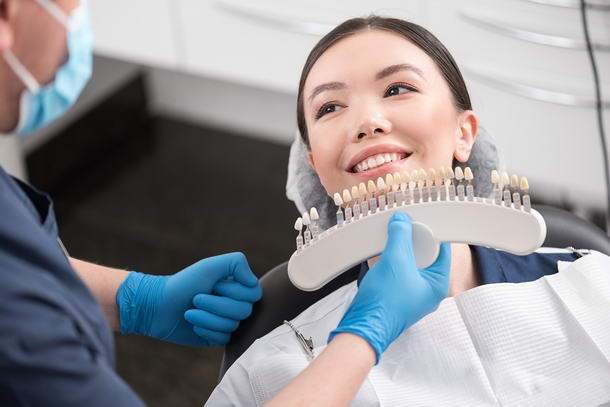To Buy Propecia No Prescription Visit Our Pharmacy ↓

Mane or Pain: The Truth About Propecia
Moreover, any allergic reactions, such as rash, itching, swelling of the face or lips, and difficulty breathing, should prompt an urgent consultation with a healthcare provider. Some users have found that supplementing with specific vitamins and herbal remedies, under the guidance of a healthcare professional, can support body functions affected by Propecia. As with any medication, individuals may experience varying reactions. Other reported side effects of Propecia include breast tenderness and enlargement, as well as allergic reactions like rash, hives, and swelling of the lips and face. Developed by Merck & Co., this prescription drug is specifically designed to combat male pattern baldness. However, Propecia offers a powerful solution by effectively treating male pattern baldness and promoting hair restoration. One such innovation is the use of a lower dose of finasteride, which has been found to be just as effective as the higher dose but with fewer side effects.
Hair loss can be a distressing and frustrating experience, leading many individuals to seek out effective treatments like Propecia
With consistent use, Propecia has shown remarkable results, providing hope and relief to countless individuals struggling with hair loss. Consulting a healthcare professional plays a critical role in safely navigating the use of Propecia for hair loss. Regardless of which treatment option is chosen, it is important to consult with a healthcare professional before starting any course of treatment. Reporting these symptoms not only aids in personal health management but also contributes to a broader understanding of the medication's impact on mental health. One study published in the Journal of Sexual Medicine found that nearly 50% of men who had taken Propecia reported persistent sexual side effects, including decreased libido and erectile dysfunction, even after stopping use. Overall, it is important for anyone considering Propecia as a hair loss treatment to thoroughly research the potential side effects and weigh the pros and cons. In rare cases, Propecia has also been associated with more serious side effects like depression, anxiety, and suicidal thoughts.
Understanding the Dosage and Usage of Propecia
Women who are pregnant or may become pregnant should steer clear of this medication as it can lead to severe birth defects. Some of these side effects include erectile dysfunction, decreased libido, and decreased semen volume. If such symptoms develop, it's crucial to discontinue use and consult a healthcare provider. However, it’s crucial to understand that Propecia is a prescription ('Script') medication with specific guidelines for use and potential side effects. Additionally, it's important to maintain regular check-ups with your healthcare provider to monitor the effectiveness and side effects of the treatment. However, it is important for patients to be aware of the potential risks and to discuss any concerns with their doctor before starting treatment. The discovery of Finasteride, the active ingredient in Propecia, can be traced back to the 1970s when researchers were testing drugs for the treatment of prostate cancer.
Real Life Success Stories
Hair loss can have a profound impact on an individual's self-esteem and overall self-confidence. These can include changes in sexual function, such as decreased libido or erectile dysfunction. Side effects, particularly those affecting mood, anxiety, or general well-being, can manifest subtly. In addition, research has also indicated that finasteride may be effective in treating hair loss in women, although further studies are needed to confirm its safety and efficacy. When using Propecia, it's important to follow these essential tips to maximize its effectiveness and achieve the desired results. However, it's important to weigh the potential side effects and risks against the potential benefits. It contains the active ingredient finasteride, which works by blocking the production of dihydrotestosterone (DHT), a hormone that is responsible for shrinking hair follicles in men with genetic predisposition to hair loss.
Is Propecia Safe for Everyone?
In rare cases, Propecia has been linked to more serious side effects such as depression and suicidal thoughts. Fortunately, there are alternative hair loss treatments available that are just as effective as Propecia without the risk of side effects. Common side effects of Propecia include decreased libido, erectile dysfunction, and decreased semen volume. When considering the financial impact of hair loss treatments, it's essential to understand the varying costs involved. Another study published in the American Journal of Psychiatry found that men who took Propecia were at a significantly higher risk of developing depression and anxiety than those who did not take the medication. Regular exercise is another beneficial practice, improving overall health and possibly alleviating some side effects by boosting blood circulation and mood. Propecia has been approved by the FDA and is available in tablet form.
However, it is important to note that Propecia may not be suitable for everyone, and the potential side effects associated with the drug are not to be taken lightly
It is important to note that these side effects are generally rare and reversible upon discontinuation of the medication. While most men experience minimal to no adverse effects, a small percentage report issues such as sexual dysfunction, including decreased libido, erectile dysfunction, and ejaculation disorders. However, along with these benefits come certain challenges that users may encounter. This restoration of hair not only enhances physical appearance, but also gives individuals a sense of confidence and self-assurance. When it comes to choosing between Propecia and natural treatments, the debate often centers on the effectiveness and side effects. Additionally, educating oneself about the treatment and setting realistic expectations can also help mitigate anxiety and improve overall mental well-being. The key is understanding the nuances of its efficacy in women.
Early Development of Propecia
While initially developed as a treatment for benign prostatic hyperplasia (BPH), researchers noticed that it also resulted in hair growth in men. By inhibiting DHT, Propecia helps to maintain existing hair and stimulate the growth of new hair. Propecia, a prescription medication approved by the FDA, has been effectively combating hair loss and regrowing hair in both men and women. Overall, while natural alternatives to Propecia do exist, it is important to approach them with caution and careful consideration. It functions by inhibiting the conversion of testosterone into dihydrotestosterone (DHT), a hormone linked to hair loss and prostate enlargement. Whether it's a receding hairline or thinning crown, the impact can be distressing. Researchers have found that the medication remains effective in reducing hair loss for many users over extended periods.
The Bottom Line
Seeking professional medical advice before starting any hair loss treatment is a wise decision that can contribute to a safe and effective treatment process. In conclusion, when it comes to deciding between Propecia and natural alternatives, there is no one-size-fits-all answer. The drug was initially developed for the treatment of benign prostatic hyperplasia (BPH), a condition characterized by the enlargement of the prostate gland in men. Some individuals may also consider natural remedies and lifestyle changes, such as incorporating vitamins and minerals into their diet or reducing stress levels. Propecia, a commonly prescribed treatment for male pattern baldness, is often surrounded by several myths, particularly regarding its impact on sexual health. Keep in mind that although rare, some symptoms could signal a more serious condition and should not be overlooked. Merck marketed the drug heavily, including direct-to-consumer advertising, and within a year, Propecia accounted for 42% of Merck's overall revenue.
Overcoming Stigma and Prejudice
Discovery of Finasteride: Recent studies and innovations have shown promising developments in the use of propecia (finasteride) for the treatment of androgenic alopecia, or male pattern baldness. It's important for users to closely monitor these symptoms and differentiate between temporary discomfort and more serious reactions that necessitate prompt action. It is important to speak with a doctor before taking Propecia to understand the potential risks and benefits, and to report any concerning side effects immediately. Each treatment option comes with its own set of benefits and potential side effects, making it essential to weigh the pros and cons before deciding on a suitable course of action. Additionally, some users have reported experiencing erectile dysfunction, which may persist even after discontinuing the medication. Further studies have shown that the medication is effective for hair regrowth and maintenance, particularly in the crown and mid-scalp areas of the head. While the journey with Propecia may come with its own set of challenges and considerations, the potential benefits often outweigh the risks.
Introduction to Hair Loss Treatments
However, unlike the Drive-Thru convenience of obtaining on the counter meds, Propecia typically requires a script and close medical supervision. Fortunately, there are solutions available to combat this battle, and one of them is Propecia. Additionally, it may be necessary to try multiple remedies in order to find the best treatment for an individual's particular case of hair loss. After extensive research and hearing about other success stories, Lisa decided to consult a specialist who recommended Propecia. By Comp - Compound. One common side effect of Propecia is decreased libido, as the medication interferes with hormones involved in sexual function. However, as an assistant, you must be aware that Propecia is not without its side effects.













